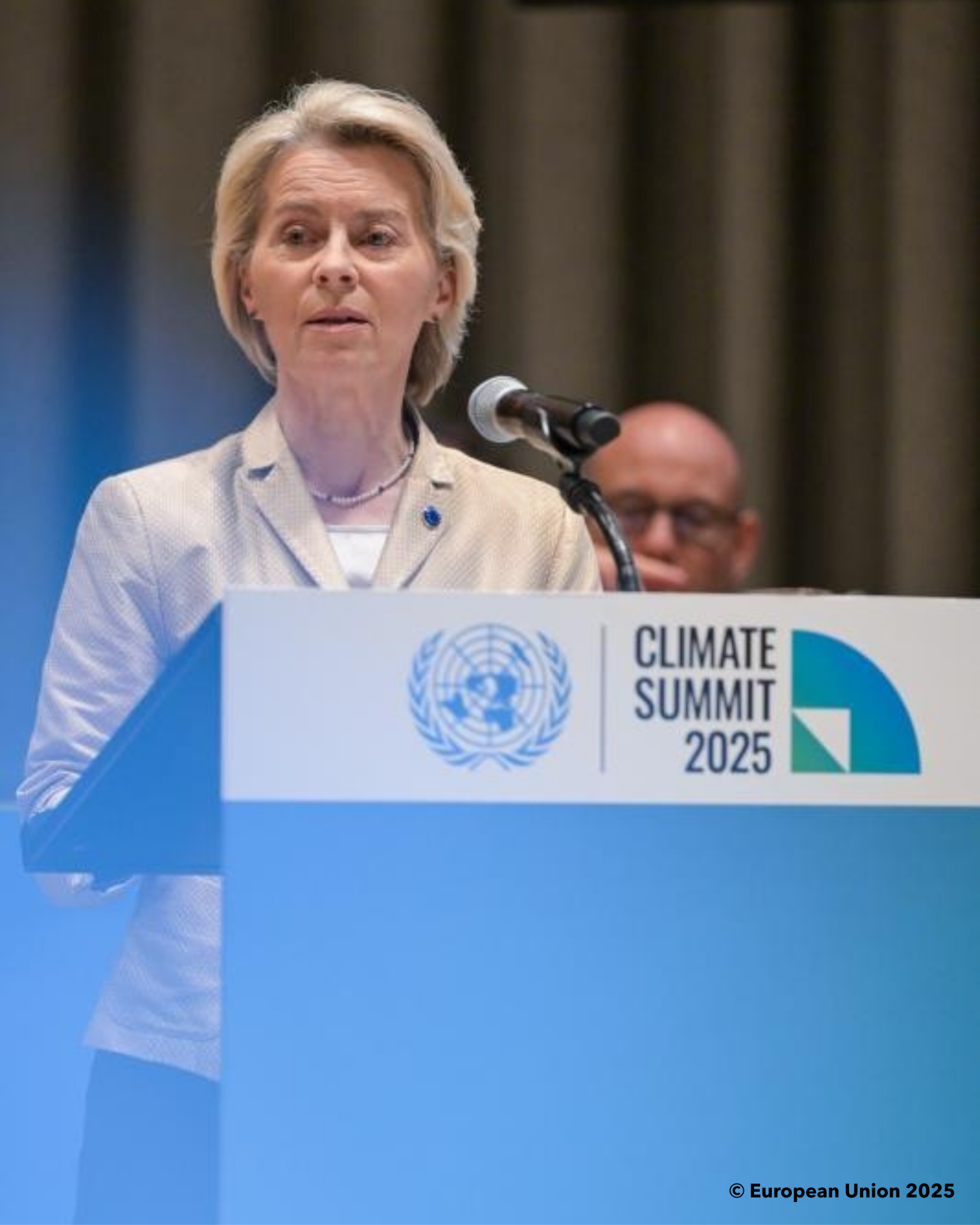
At the United Nations Climate Summit in New York on 24 September, Commission President Ursula von der Leyen declared that “the world can count on Europe’s climate ambition.” This followed a joint declaration issued just two days earlier, in which she and several leaders from Europe, Africa, Latin America, and the Caribbean warned that developing countries risk being left behind in the green transition without substantial new financing. They described the coming period as a “decisive decade” for climate action and pledged to unlock investment, reduce risks, and work with development banks to close the multibillion-dollar funding gap.
Yet, despite these ambitious premises, the concrete pledge von der Leyen was expected to present in New York—the EU’s nationally determined contribution (NDC) for 2035, due for COP30 in Belém, Brazil, this November—was not forthcoming. Instead of an agreed target, she announced only an indicative greenhouse gas emission reduction of 66.25–72.5% compared with 1990 levels. The original NDC submission deadline, set for February 2025, had already been missed, reinforcing perceptions of delay and indecision within the EU.
While the EU has cut emissions by 40% since 1990 and remains on track to meet its 55% reduction target by 2030, agreement on the proposed 90% reduction by 2040—from which the 2035 milestone would be derived—remains elusive. France, Germany, Italy, and Poland have called for further discussion at the October European Council, leaving only limited time to finalise and submit the 2035 NDC ahead of COP30.
Von der Leyen’s address followed that of Chinese President Xi Jinping, who announced a new set of targets: a 7–10% reduction in greenhouse gas emissions from peak levels by 2035, a sixfold increase in solar and wind capacity compared with 2020, and more than 30% of energy to come from non-fossil fuels by the same date. Though described by several observers as relatively modest, Xi framed China’s transition as “the trend of our time,” calling for international cooperation on green technologies and the global trade in “quality green products.” In stark contrast, US President Donald Trump, speaking the previous day, dismissed climate change as “the greatest con job ever perpetrated on the world.”
In this shifting climate diplomacy landscape, with the United States assertively retreating from global engagement, what many had seen as an opportunity for Europe to fill the resulting vacuum is failing to materialise amid persistent internal divisions. That space is increasingly being occupied by China, which, as both the world’s largest emitter and a dominant clean energy power, is taking control over the terms of the debate, leaving little room for either Europe, paralysed by internal discord, or the US, withdrawing from climate leadership, to influence the global climate diplomacy agenda.